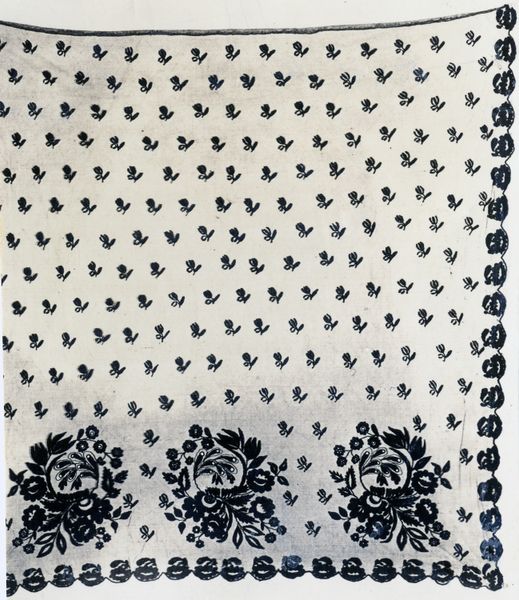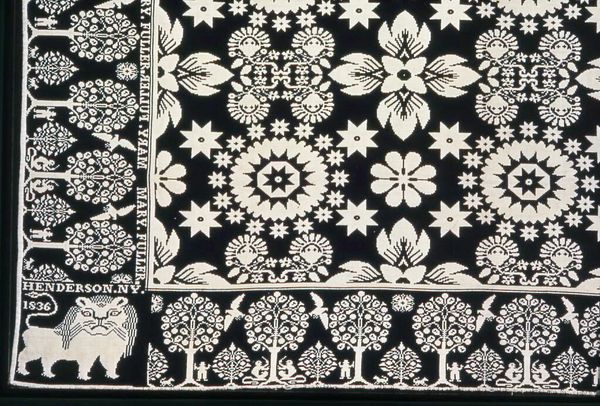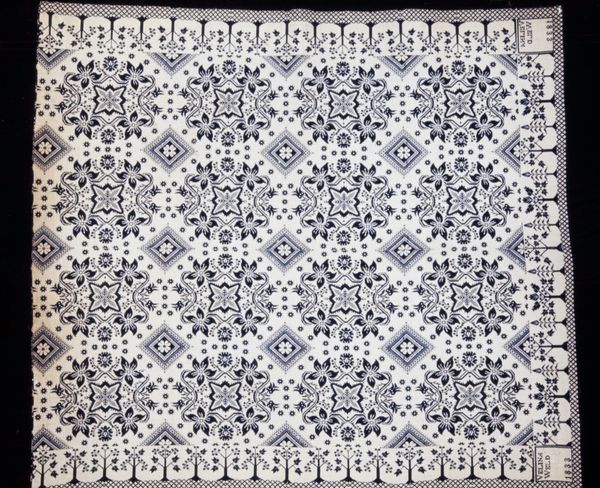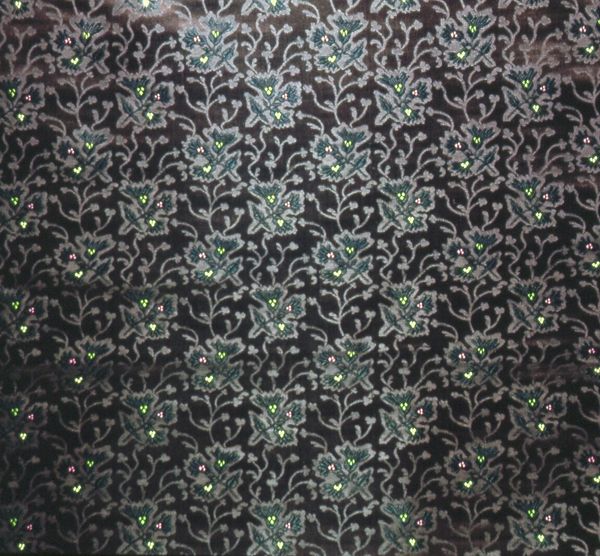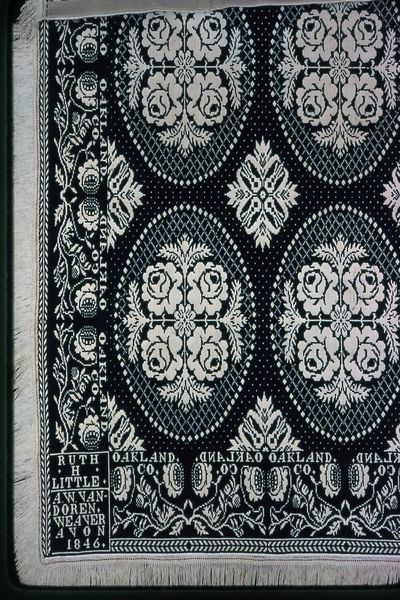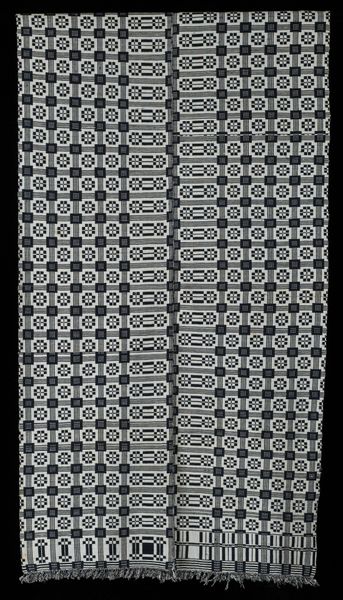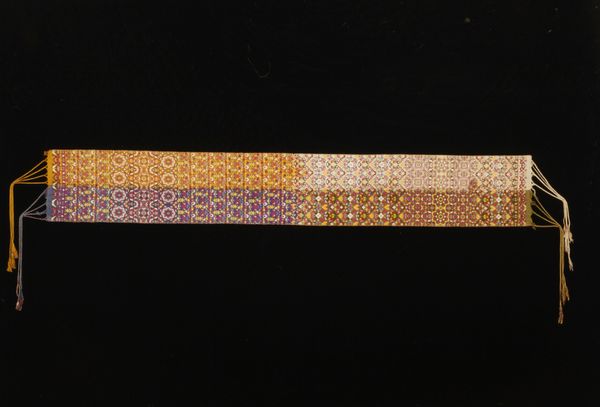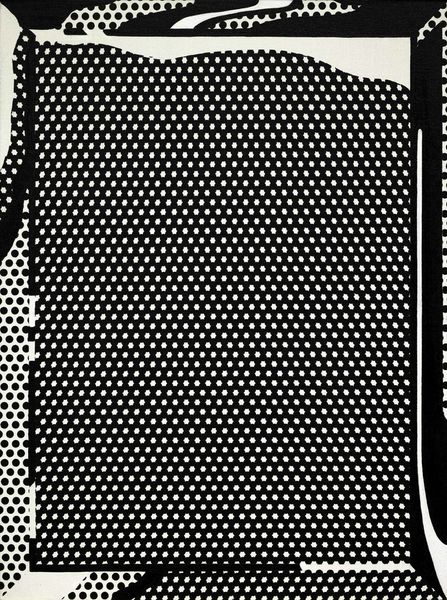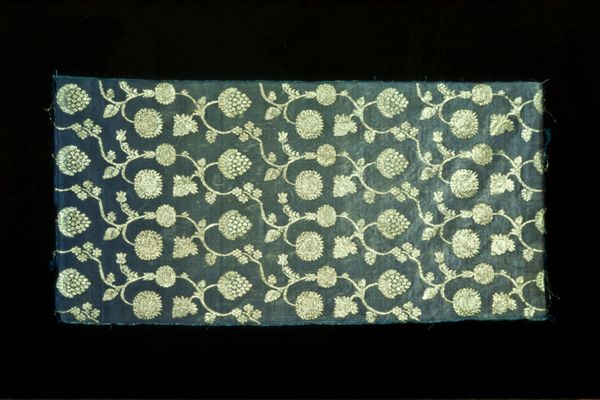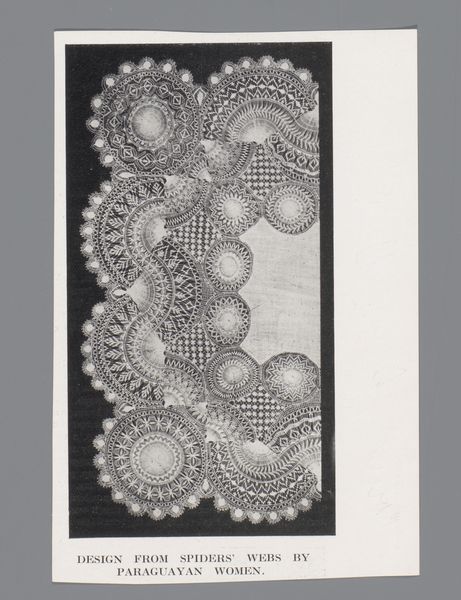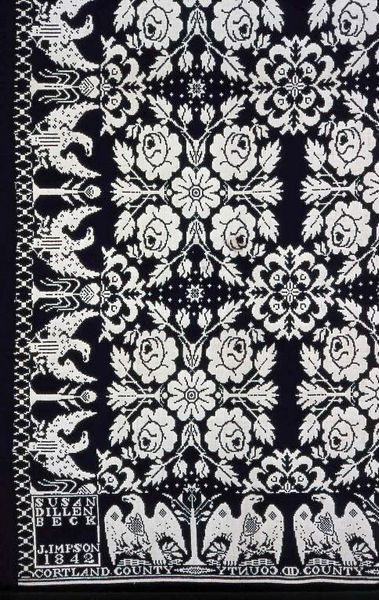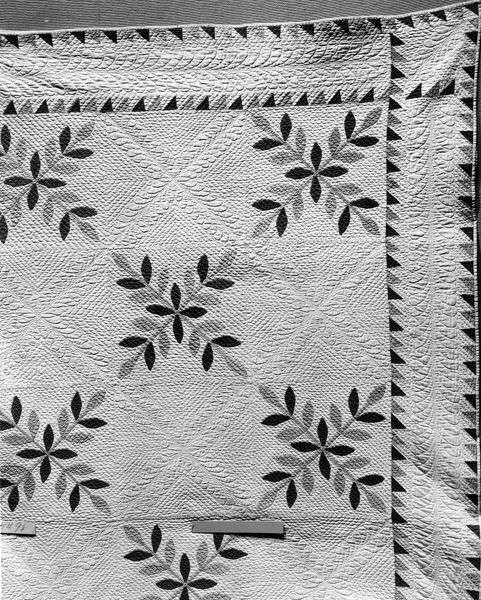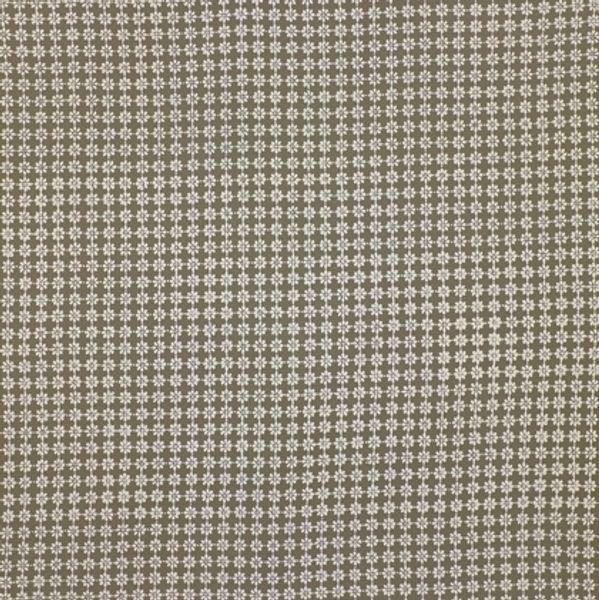
textile
#
organic
#
textile
#
geometric pattern
#
organic pattern
#
geometric
#
romanticism
#
repetition of pattern
#
pattern repetition
Dimensions: 114.4 × 108.7 cm (45 × 42 3/4 in.)
Copyright: Public Domain
This is a Bonnet Veil by Sara Russ, now held at the Art Institute of Chicago. We don't know when this piece was made, but lace work like this has a fascinating history that speaks to the complicated social structures of gender. In previous centuries, lace was a symbol of status and wealth, often associated with the aristocracy. But by the 19th century, the rise of industrialization and the factory system meant that lacework became accessible to a wider range of social classes. It provided work to women, but the conditions in factories were notoriously poor. At the same time, lacework was seen as a 'feminine' occupation, reinforcing the idea that women's work was less valuable than men's. We can use historical sources like census records, factory reports, and feminist writing to understand the place of pieces like this within their social and economic context. In doing so, the veil becomes more than just a pretty object; it becomes a window onto a complex network of social, economic, and cultural forces that shaped the lives of women.
Comments
No comments
Be the first to comment and join the conversation on the ultimate creative platform.
